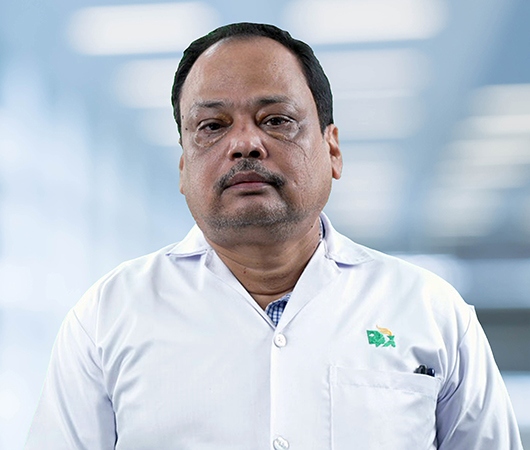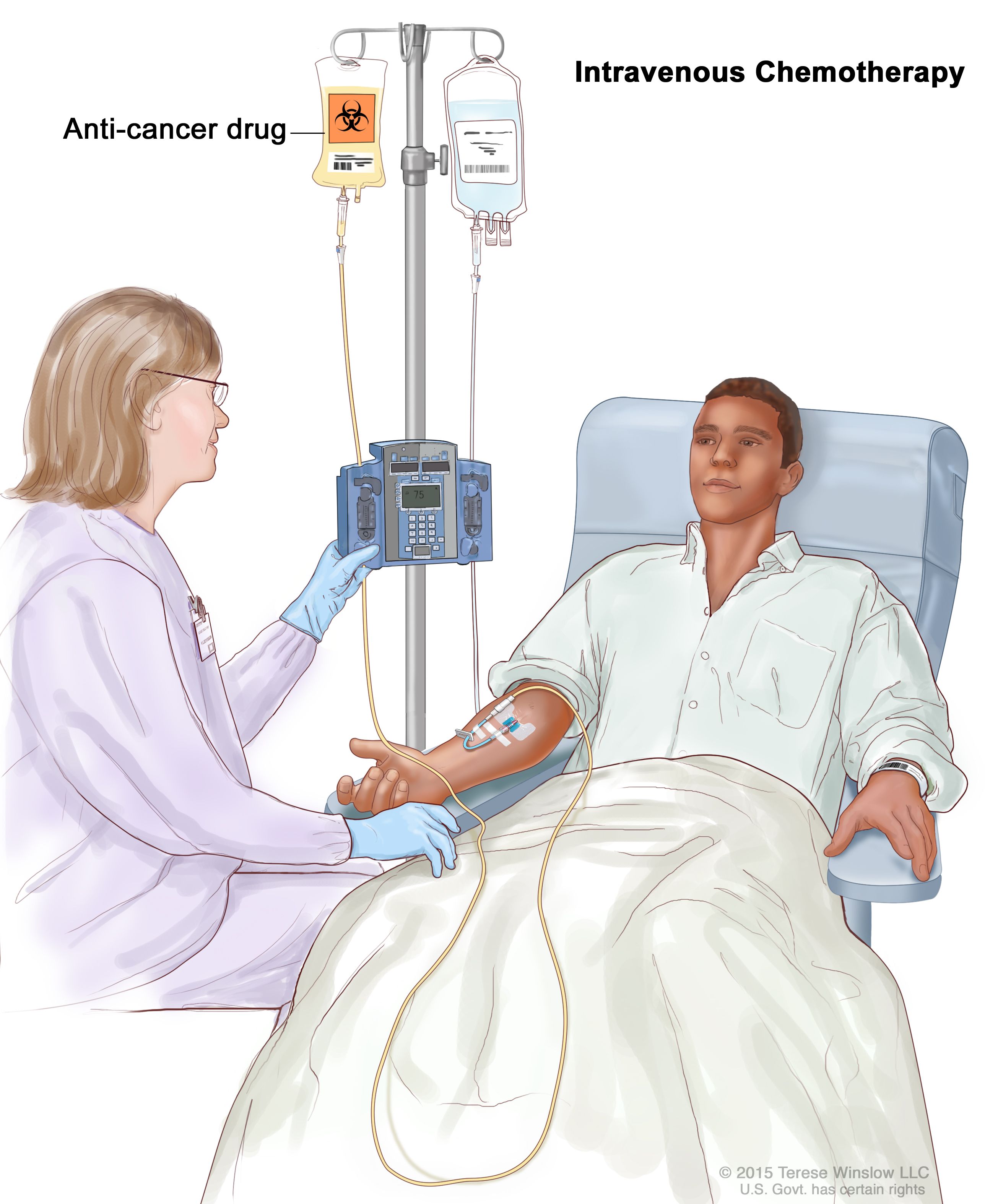Chemotherapy: Effective Treatment for Cancer
Chemotherapy is one of the most common and powerful treatments for various types of cancer. It involves using medications (chemotherapy drugs) that target and destroy cancer cells, slow their growth, or prevent their spread. Chemotherapy can be administered in several ways and can be used alone or in combination with other treatments like surgery, radiation therapy, or immunotherapy. At Healtour Solutions, we help connect you with the best oncologists and top hospitals in India that specialize in chemotherapy to ensure you receive the best possible care.
Types of Chemotherapy
- Neoadjuvant Chemotherapy
- Definition: Administered before surgery to shrink tumors, making them easier to remove during surgery.
- Purpose: Helps reduce the size of tumors, increasing the chances of successful surgery.
- Adjuvant Chemotherapy
- Definition: Given after surgery to kill any remaining cancer cells and reduce the risk of recurrence.
- Purpose: It’s used to eliminate residual cancer cells and lower the likelihood of cancer returning.
- Palliative Chemotherapy
- Definition: Given to relieve symptoms and improve the quality of life in patients with advanced cancer.
- Purpose: Does not aim to cure cancer but helps manage pain and other distressing symptoms of the disease.
- Targeted Chemotherapy
- Definition: Uses drugs that specifically target and interfere with the molecular processes in cancer cells.
- Purpose: More precise and less harmful to normal cells, these drugs block cancer cell growth and spread.
Benefits of Chemotherapy
Symptoms of Cancer That May Indicate the Need for Chemotherapy
Chemotherapy is recommended when cancer shows symptoms such as:
- Unexplained weight loss
- Persistent pain or swelling in a particular area
- Sudden changes in bowel or bladder habits
- Persistent cough or difficulty breathing
- Lumps or growths under the skin
- Fatigue and weakness
- Frequent or unexplained bleeding
These symptoms can vary based on the type of cancer. A thorough evaluation and timely intervention by an oncologist can help in making the right treatment decision.
Causes of Cancer That Might Require Chemotherapy
Chemotherapy is often used to treat cancers caused by:
Chemotherapy Treatment Process
- Consultation and Diagnosis
- The first step involves meeting with an oncologist who will discuss your diagnosis, medical history, and suitability for chemotherapy.
- Treatment Plan
- Based on the type, stage, and location of cancer, a personalized chemotherapy regimen will be designed, taking into account your health and preferences.
- Chemotherapy Sessions
- Chemotherapy is typically administered through intravenous (IV) infusion, oral medication, or injections. The number of sessions will depend on the type and stage of cancer.
- Monitoring
- Regular tests like blood work and imaging scans are performed to track the effectiveness of the treatment and manage side effects.
- Post-Treatment Care
- After chemotherapy, patients will have follow-up appointments to monitor their recovery, prevent recurrence, and manage any side effects.
Chemotherapy Side Effects
While chemotherapy is highly effective, it may cause several side effects. These side effects vary depending on the drugs used and the individual’s health:
- Fatigue: One of the most common side effects; patients often feel extremely tired during and after chemotherapy.
- Hair Loss: Chemotherapy drugs affect hair follicles, leading to hair thinning or loss.
- Nausea and Vomiting: These side effects can often be controlled with anti-nausea medications.
- Low Blood Cell Counts: Chemotherapy can lower the number of red blood cells, white blood cells, and platelets, which increases the risk of infection and bleeding.
- Mouth Sores: Sores in the mouth and throat can make eating and drinking difficult.
- Loss of Appetite: Patients may lose interest in food or feel nauseous, leading to weight loss.
- Skin Changes: Skin may become dry or discolored, and nails may become brittle.
Fortunately, modern chemotherapy methods and supportive care help manage these side effects, and they often subside after the treatment is completed.
Why Choose Healtour Solutions for Chemotherapy Treatment in India?
- Expert Oncologists: We connect you with the best oncologists who specialize in chemotherapy for different cancers.
- Affordable Care: Chemotherapy in India is significantly more affordable compared to other countries, ensuring high-quality care at a lower cost.
- Comprehensive Support: We guide you through every step of your treatment, from diagnosis to post-treatment care.
- Advanced Technology: Partnering with the latest hospitals and treatment facilities in India ensures access to the most advanced chemotherapy technologies.
Step-by-Step Guide to Chemotherapy Treatment
- Initial Consultation and Diagnosis
- The journey begins with an oncologist consultation. They will perform a series of tests and imaging to confirm your cancer type and stage.
- Treatment Planning
- Based on the diagnosis, a personalized chemotherapy plan is created to ensure the treatment is effective for your specific needs.
- Chemotherapy Sessions
- Chemotherapy is typically delivered through IV drips, oral medication, or injections, depending on the cancer and drugs used. Sessions are planned and spaced over several weeks.
- Monitoring and Adjustments
- Throughout treatment, blood tests and imaging are performed to monitor how well the chemotherapy is working and make any necessary adjustments.
- Post-Treatment Care
- After chemotherapy, you’ll need follow-up visits to check for cancer recurrence and manage any long-term side effects. The oncologist will ensure that your recovery is on track.
Contact Us for Chemotherapy Treatment
For personalized chemotherapy treatment, connect with Healtour Solutions to find top oncologists and affordable chemotherapy options in India. Contact us today to learn more about your treatment options.
FAQs About Chemotherapy
- What is chemotherapy?
Chemotherapy uses drugs to kill cancer cells or stop their growth and spread. It is one of the most effective cancer treatments.
- How long does chemotherapy take?
Treatment typically lasts several weeks or months, depending on the cancer type and chemotherapy plan.
- What are the side effects of chemotherapy?
Side effects include hair loss, fatigue, nausea, vomiting, and low blood cell counts. These side effects can be managed effectively with medications.
- Is chemotherapy painful?
Chemotherapy itself does not cause pain, but side effects like mouth sores, fatigue, or nausea may cause discomfort.
- How effective is chemotherapy?
Chemotherapy is highly effective in treating many cancers, especially when used early. It can shrink tumors, prevent the spread of cancer, and improve survival.
- Can chemotherapy cure cancer?
Chemotherapy can cure certain types of cancer. It is also used to manage cancer, reduce recurrence risk, and provide symptom relief.
- Is chemotherapy safe?
Yes, chemotherapy is safe when prescribed and monitored by experienced oncologists. Supportive care can help manage side effects.
- How much does chemotherapy cost in India?
The cost varies based on the cancer type and treatment specifics, generally ranging between $1,500 and $7,000.
- Can chemotherapy be combined with other treatments?
Yes, chemotherapy is often combined with surgery, radiation, or immunotherapy for better outcomes.
- What happens after chemotherapy?
After treatment, patients will have follow-up appointments to check for recurrence and manage any long-term side effects.



